109 start with V start with V

On June 8, 1982, Ronald Reagan delivered a historic address to the British Parliament, promising that the United States would give people around the world “a voice in their own destiny” in the struggle against Soviet totalitarianism. While British Prime Minister Margaret Thatcher celebrated Reagan’s visit and thanked him for putting “freedom on the offensive,” over 100,000 Britons marched from Hyde Park to Trafalgar Square to protest his arrival and call for nuclear disarmament. Reagan’s homecoming was equally eventful, with 1,000,000 protesters marking his return with a rally for nuclear disarmament in Central Park—the largest protest in American history up to that point.
Employing a wide range of previously unexamined primary sources, Anthony M. Eames demonstrates how the Reagan and Thatcher administrations used innovations in public diplomacy to build back support for their foreign policy agendas at a moment of widespread popular dissent. A Voice in Their Own Destiny traces how competition between the governments of Reagan and Thatcher, the Anglo-American antinuclear movement, and the Soviet peace offensive sparked a revolution in public diplomacy.
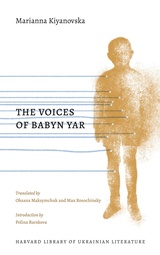
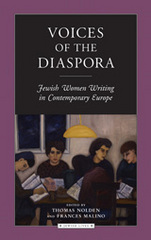
At the same time, these writers address themes specific to their national contexts. Berlin-born Barbara Honigmann questions the possibility of Jewish life in the country responsible for the "final solution." Maghreb-born Marlène Amar and Reina Roffé address the experiences of displacement and emancipation as Sephardic women in Western, post-colonial societies. Clara Sereni describes how Jews in post-Fascist Italy reemerged with a self-assertiveness that troubled a society that had found comfort in amnesia. Ludmila Ulitskaya portrays a Jewish girlhood on the eve of Stalin's death empowered by the religious traditions of Jewish resistance.
From the unique perspective of women's literary voices, this volume reveals to English-speaking readers the extraordinary vivacity and diversity of European Jewry, and introduces them to a new generation of women writers.
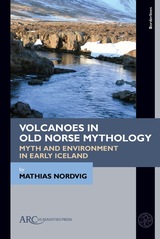
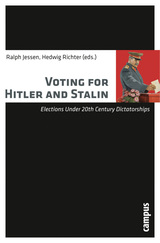
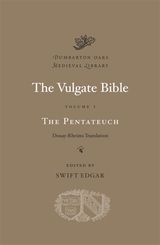
The Vulgate Bible, compiled and translated in large part by Saint Jerome at the intersection of the fourth and fifth centuries CE, was used from the early Middle Ages through the twentieth century in the Western European Christian (and, later, specifically Catholic) tradition. Its significance can hardly be overstated. The text influenced literature, visual art, music, and education during the Middle Ages and Renaissance, and its contents lay at the heart of much of Western theological, intellectual, artistic, and even political history of that period. At the end of the sixteenth century, as a variety of Protestant vernacular Bibles became available, professors at a Catholic college first at Douay, then at Rheims, translated the Vulgate into English, among other reasons to combat the influence of rival theologies.
This volume elegantly and affordably presents the text of the Pentateuch, the first five books of the Bible, beginning with the creation of the world and the human race, continuing with the Great Flood, God’s covenant with Abraham, Israel’s flight from Egypt and wanderings through the wilderness, the laws revealed to Moses, his mustering of the twelve tribes of Israel, and ending on the eve of Israel’s introduction into the Promised Land. This is the first volume of the projected six-volume set of the complete Vulgate Bible.
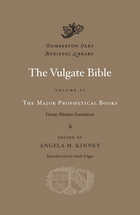
This is the fourth volume of a projected six-volume Vulgate Bible. Compiled and translated in large part by Saint Jerome at the turn of the fifth century ce, the Vulgate Bible permeated the Western Christian tradition through the twentieth century. It influenced literature, art, music, and education, and its contents lay at the heart of Western theological, intellectual, artistic, and political history through the Renaissance. At the end of the sixteenth century, professors at a Catholic college first at Douay, then at Rheims, translated the Vulgate Bible into English to combat the influence of Protestant vernacular Bibles.
Volume IV presents the writings attributed to the “major” prophets (Isaiah, Jeremiah, Ezekiel, and Daniel), which feature dire prophecies of God’s impending judgment, punctuated by portentous visions. Yet profound grief is accompanied by the promise of mercy and redemption, a promise perhaps illustrated best by Isaiah’s visions of a new heaven and a new earth. In contrast with the Historical Books, the planned salvation includes the gentiles.
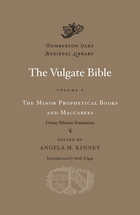
This is the fifth volume of a projected six-volume Vulgate Bible. Compiled and translated in large part by Saint Jerome at the turn of the fifth century ce, the Vulgate Bible permeated the Western Christian tradition through the twentieth century. It influenced literature, art, music, and education, and its contents lay at the heart of Western theological, intellectual, artistic, and political history through the Renaissance. At the end of the sixteenth century, professors at a Catholic college first at Douay, then at Rheims, translated the Vulgate Bible into English to combat the influence of Protestant vernacular Bibles.
Volume V presents the twelve minor prophetical books of the Old Testament, as well as two deuterocanonical books, 1 and 2 Maccabees. While Jewish communities regarded the works of the twelve minor prophets as a single unit (the Dodecapropheton), the Vulgate Bible treats them individually in accordance with Christian tradition. The themes of judgment and redemption featured prominently in the major prophets (Volume IV) are further developed by the minor prophets. The books of 1 and 2 Maccabees conclude the volume. Their doctrinal controversies and highly influential martyrdom narratives anticipate the development of Christian hagiography both as a genre and as a theological vehicle.
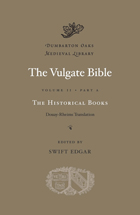
This is the second volume, in two parts, of a projected six-volume set of the complete Vulgate Bible.
Compiled and translated in large part by Saint Jerome at the turn of the fifth century CE, the Vulgate Bible was used from the early medieval period through the twentieth century in the Western Christian (and later specifically Catholic) tradition. It influenced literature, visual arts, music, and education during the Middle Ages and Renaissance, and its contents lay at the heart of Western theological, intellectual, artistic, and even political history during that period. At the end of the sixteenth century, as Protestant vernacular Bibles became available, professors at a Catholic college first at Douay, then at Rheims, translated the Vulgate Bible into English, primarily to combat the influence of rival theologies.
Volume II presents the Historical Books of the Bible, which tell of Joshua’s leading the Israelites into the Promised Land, the judges and kings, Israel’s steady departure from God’s precepts, the Babylonian Captivity, and the return from exile. The focus then shifts to shorter, intimate narratives: the pious Tobit, whose son’s quest leads him to a cure for his father’s blindness; Judith, whose courage and righteousness deliver the Israelites from the Assyrians; and Esther and Mordecai, who saved all the Jews living under Ahasuerus from execution. These three tales come from books that were canonical in the Middle Ages but now are often called “apocryphal,” with the partial exception of the Book of Esther.
READERS
Browse our collection.
PUBLISHERS
See BiblioVault's publisher services.
STUDENT SERVICES
Files for college accessibility offices.
UChicago Accessibility Resources
home | accessibility | search | about | contact us
BiblioVault ® 2001 - 2024
The University of Chicago Press









